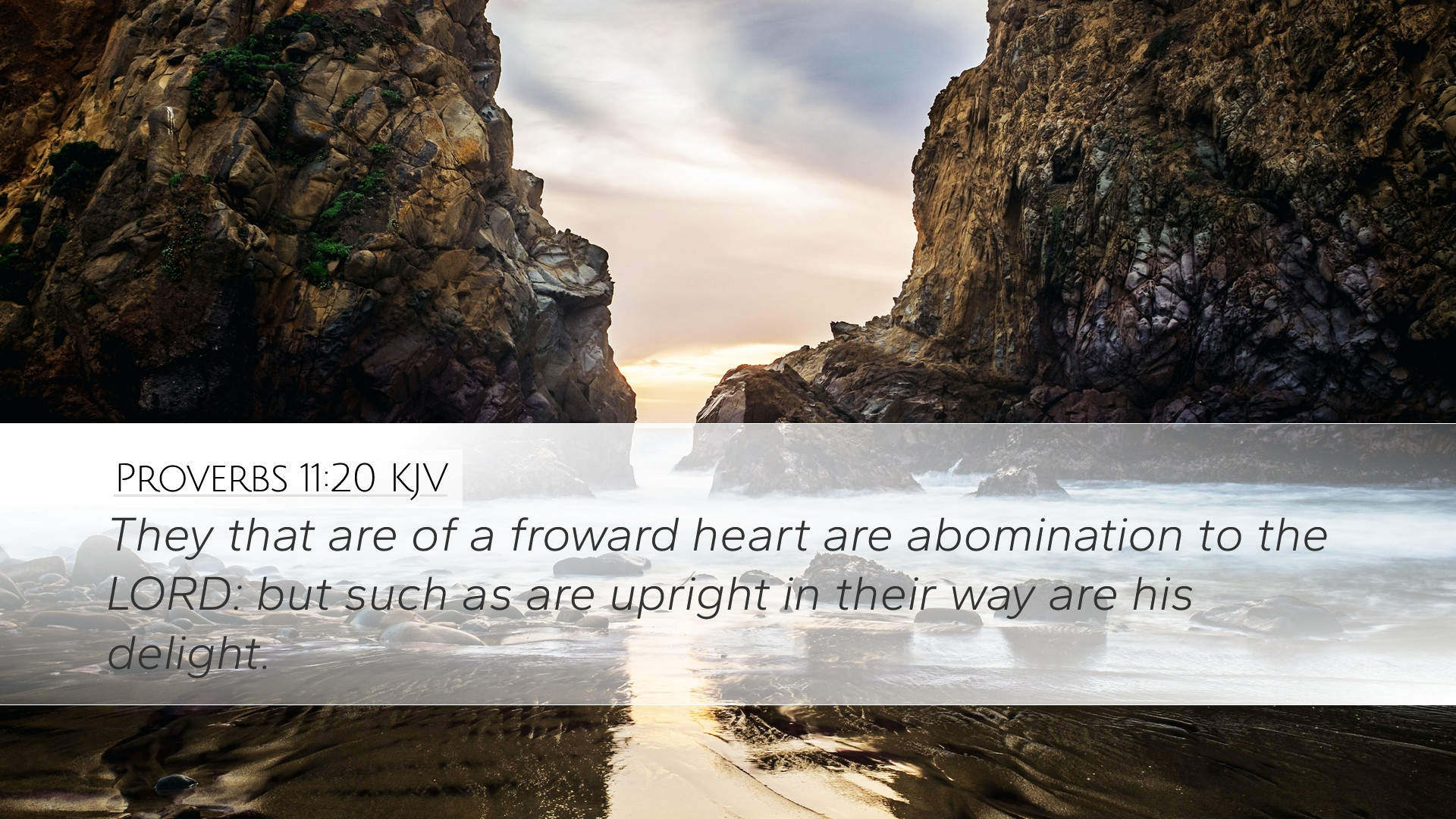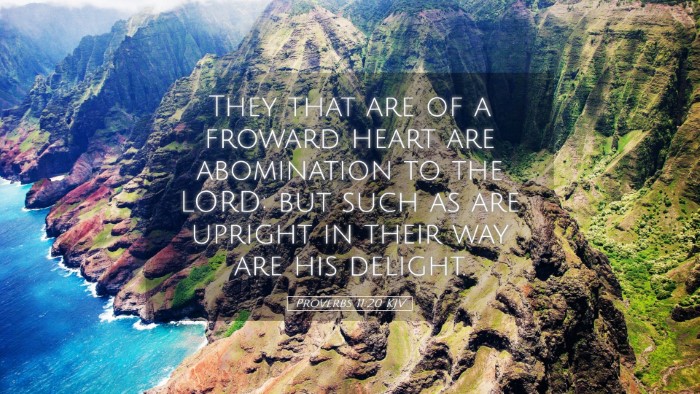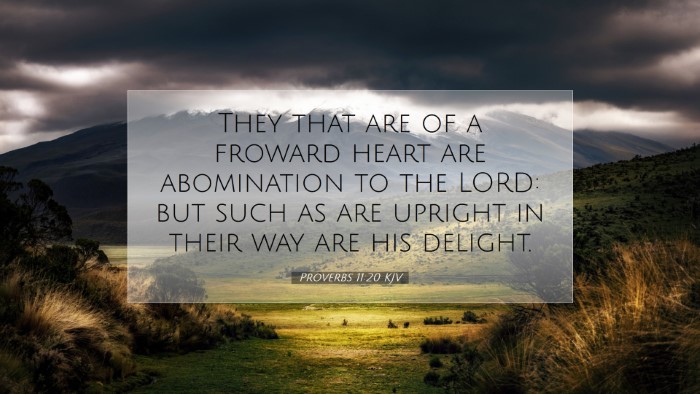Proverbs 11:20 Commentary
Verse: "They that are of a froward heart are abomination to the Lord: but such as are upright in their way are his delight."
Introduction
Proverbs 11:20 encapsulates the moral dichotomy that characterizes much of the wisdom literature found in the Bible. It highlights the contrast between the froward (or perverse) heart and the upright heart. Understanding this verse is integral for pastors, students, theologians, and scholars, as it addresses themes of morality, divine favor, and the general nature of human conduct in relation to God’s will.
Exegesis of the Verse
This verse opens with a strong declaration regarding "a froward heart." The term "froward" implies a heart inclined toward rebellion, wickedness, or moral deviation. As noted by Matthew Henry, such hearts are seen as "an abomination to the Lord." The use of "abomination" emphasizes the severity of moral and ethical corruption from God’s perspective, indicating not just disfavor, but a deep abhorrence.
Conversely, the latter part of the verse shifts focus to those "upright in their way." Albert Barnes elaborates that those who live in accordance with divine principles and moral rectitude attract God's delight. Their righteousness aligns with the character of God and His expectations for humanity, resulting in divine approval and favor.
The Nature of Frowardness
-
Moral Deviation: The term "froward" suggests a willful departure from God’s commandments. Adam Clarke reinforces this notion by stressing that individuals who practice deceit and embrace wickedness stand opposed to God’s character.
-
Relational Implications: Froward hearts not only rebel against the Lord but also against established moral codes, leading to societal discord. There is no peace for the froward, and their relationships are often fractured, yielding further disarray.
-
Judgment and Consequence: As a result of their wickedness, those with froward hearts ultimately face consequences—spiritual blindness, lack of discernment, and the eventuality of divine judgment.
The Upright: Characteristics and Divine Favor
-
Integrity and Righteousness: The upright achieve a life marked by integrity. Matthew Henry remarks that there is a stability in those who align themselves with God’s will, leading to triumphant living in the face of adversities.
-
Delight of the Lord: The statement that the upright are God's delight serves as an assurance to believers. The favor of God is often synonymous with blessings and peace, which the righteous can confidently anticipate.
-
Effects on Society: In the larger context, when individuals embody righteousness, they contribute to a conducive societal framework. Such individuals promote justice, compassion, and harmony, reflecting God’s kingdom on earth.
Application and Implications for Today
The contemporary relevance of Proverbs 11:20 is evident, especially within ministerial and academic circles, as discussions surrounding ethics and morality continue to unfold. The dichotomy presented in this verse invites reflection on personal attitudes and behaviors in the life of a believer.
-
Self-Examination: Individuals are encouraged to self-examine their hearts and ensure they do not adopt a froward mindset. This involves discerning not only outward actions but inward motives.
-
Encouragement to Pursue Righteousness: The verse serves as a motivator to pursue uprightness in every aspect of life. Whether in personal life, ministry, or academic research, invoking a spirit of righteousness aligns with biblical standards.
-
Community Influence: As members of a faith community, striving for uprightness can create ripple effects within society. Encouraging others in faith can lead to collective righteousness that glorifies God.
Conclusion
Proverbs 11:20 profoundly communicates a timeless principle: that morality is crucial in establishing a relationship with God. The froward heart is met with divine rejection, while the upright witness His delight. Such insights should anchor the teachings and practices of believers, illuminating the path toward righteousness and integrity in all pursuits, ultimately reflecting the character of God in a fallen world.


